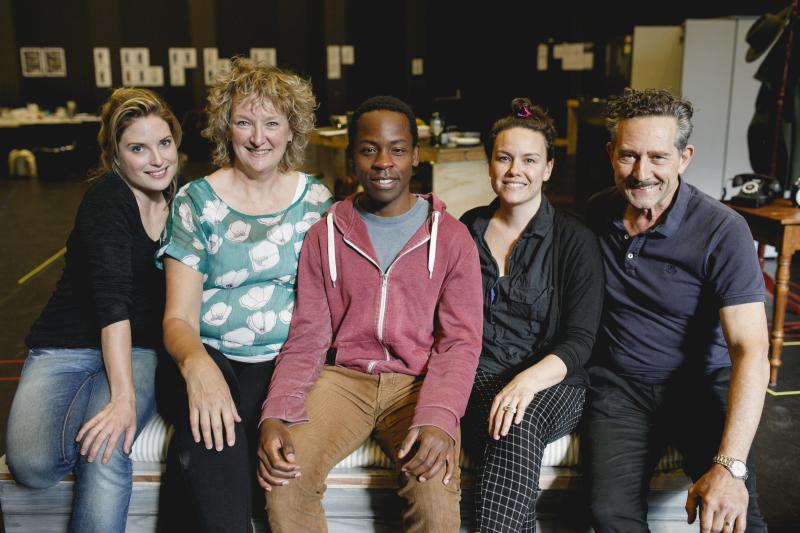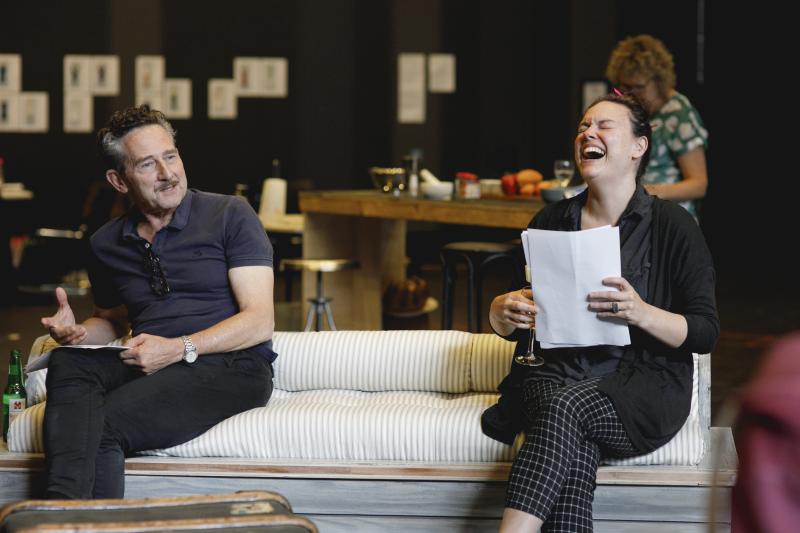Interview: Jane Bodie of WATER at Black Swan State Theatre Company

Image by Daniel J Grant
BLACK SWAN State Theatre Artistic Director Clare Watson has commissioned playwright Jane Bodie to write a new play called Water for the theatre company's 2019 season. Bodie takes some time to answer a few questions about the play and gives us some insight into her life as a playwright.
The play discusses the idea of people moving across bodies of water, so presumably the play's title is both literal and metaphorical. Could you talk a little bit about how water, in both of those senses, manifests throughout the play?
Yes, there are actually many reasons the play's called Water. Firstly, it deals with our immigration policies and how this might be viewed in the future. I am always struck, when reading refugee stories, by the epic and often life-threatening journeys they have taken to come here, crossing water - sometimes seeing the ocean for the first time - in order to find safety for themselves and their family.
Then, the play is set in the near future and there is a severe drought, hence, water being something that is valued but running out. And once more the play questions how we may view what we have done to the planet when resources are running out.
Finally, the play is set over three different eras, and the unifying theme is characters seeking refuge after having gone through hardship, war or otherwise. Water is something that we as humans cannot survive without, and yet we are careless with it, we take it for granted. It struck me that inasmuch as all human beings deserve a safe place to live, we all need water to survive - it unites us.

How does it feel to be commissioned to write a play, and how does that differ from writing a non-commissioned play?
It's great to be approached by an artistic director to write a play for them, as it's a vote of confidence up front (and a wage!), and you hope that they want the sort of play that you write. With this play I feel I've written in a bigger, more ambitious way than I ever have before and that's partially due to the conversations Clare Watson and I had at the beginning of the process; she gave me some provocations and then let me go dream, which is the ideal situation.
In terms of non-commissioned plays, I don't do that so much anymore, as I mainly survive on my playwriting! But if I have a burning urge to write a particular play responding to something in my life or in the world (often both), then I tend to try and talk to theatre companies and get them as excited about the idea as I am, and try to get them to commission it, or put some money into it. When you start out as a playwright though, you just write those burning plays that you need to, so that you can get your plays and name out there - there's no other way.
You spoke in another interview about how the loss of your father brought about a kind of shift in your writing. Without getting too personal, do you find yourself writing about your own family dynamics, or do you draw upon other families' stories?
Both. I try not to dig too deeply or truthfully into my own family stuff in an overt way, because nobody asked to be related to a playwright who airs all their secrets. Also, I've written too many plays for them to be just about me and my family anymore. But of course that 'lived' stuff is always there somewhere under the surface of your plays - a feeling, or a conversation, or an event. I then tend to put that into a totally imagined situation, to take it away from me and make it more theatrical.
I also realise now that I tend to write stories and characters that are a combination or hybrid of something I know really well, like my grief over my father's death, and something that I'm curious to know about, like cricket, in the case of This Year's Ashes, the play about my father's death. Then the play has a mixture of lived truth and burning curiosity, which hopefully translates into something compelling.

Image by Daniel J Grant
As a fellow expat myself, I'm always interested in how transplants to Australia adjust to Australian humour and sensibilities. When you're writing for Australian audiences, do you adjust how you might express an idea with this in mind?
I've lived here so long, I'm not sure I can answer that anymore. But I do always think my plays have a very black Irish humour (which I get from my family, but could also be seen as Australian), and I often write a certain quickness/sharpness into the dialogue that I feel might be very English. But having said that, as I've lived here half my life, it's Australian stories and people that I'm now writing, and the landscape here is wonderful as a backdrop for plays, so rich and dramatic.
But no, I don't adjust for an Australian audience (except for the weather sometimes! and the occasional phrase) because Australian audiences tend to get my work, so I feel I must, on some level, be speaking to and for them. I hope so anyway. My last play, Lamb (with songs by Mark Seymour), was set on an Australian sheep farm, and a lot of the audience, some of them farmers, assumed I had grown up on one, so I was very glad about that. I think as playwrights, it's our job to fully understand and get right the worlds we choose to write about, or why are we writing them?
What do you hope audiences will gain or take away from seeing your ideas come to life on stage, with this play and with your works in general?
I think good plays are equal parts instinct and intellect, so I always hope to make an audience think, and maybe think differently, about a situation, a person, or an act, but also to feel, deeply. In order to do that, they have to care about the characters and what happens to them, so that's my first hope.
With this play, I'm also really hoping that the audience will think long and hard about our current treatment of refugees and asylum seekers, and take some responsibility for our policies and our treatment of other human beings. The structure of the play urges us to also to ask about our treatment of other human beings throughout history, to question our culpability over history, our acceptance of what politics tells us is the truth, and to question our right to deny anyone a safe place to live - to look back at what we, and other countries, have done, in order to learn from history and to make a change. And I want them to be moved, gripped and entertained. If it does some of that, then I will be a happy playwright. No pressure!
BSSTC'sWater by Jane Bodie runs from 9 - 26 May at the Studio Underground. For tickets and more information, go to: https://www.bsstc.com.au/plays/water
Videos
